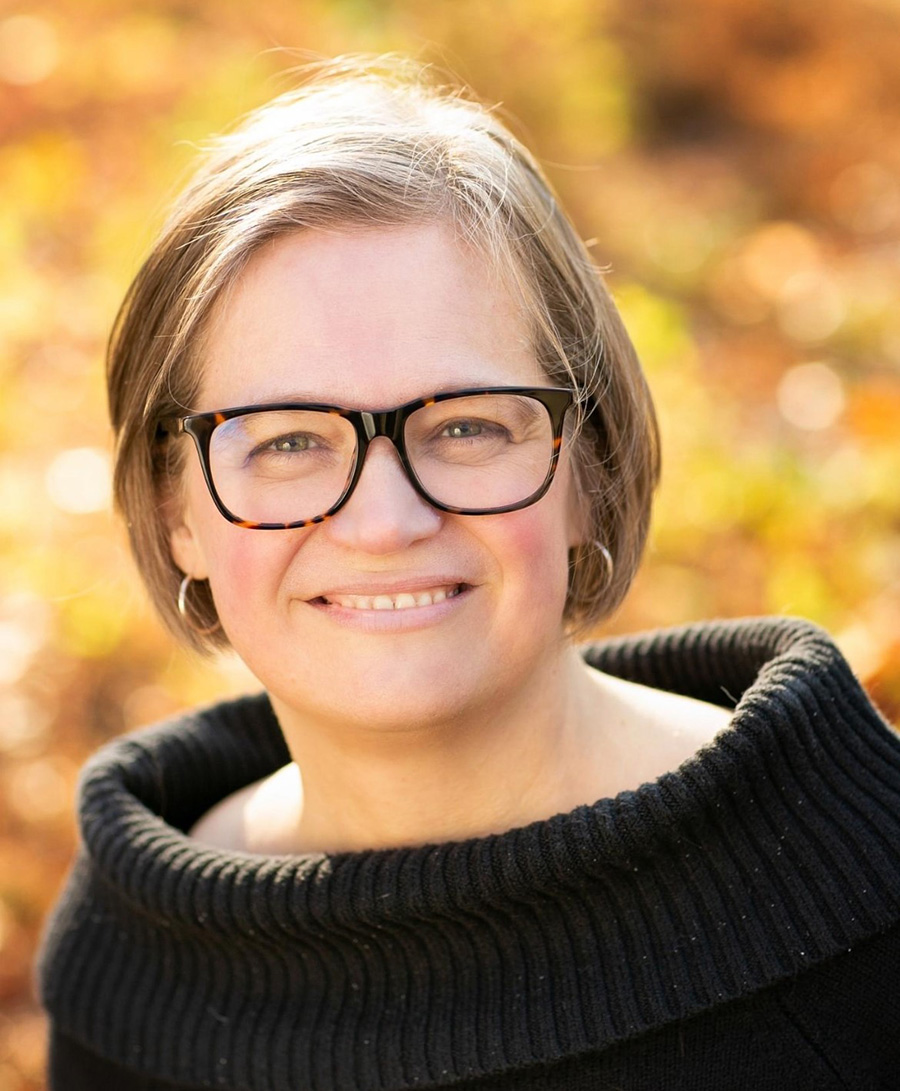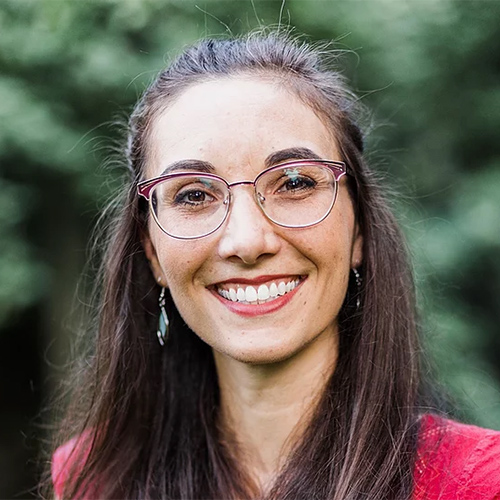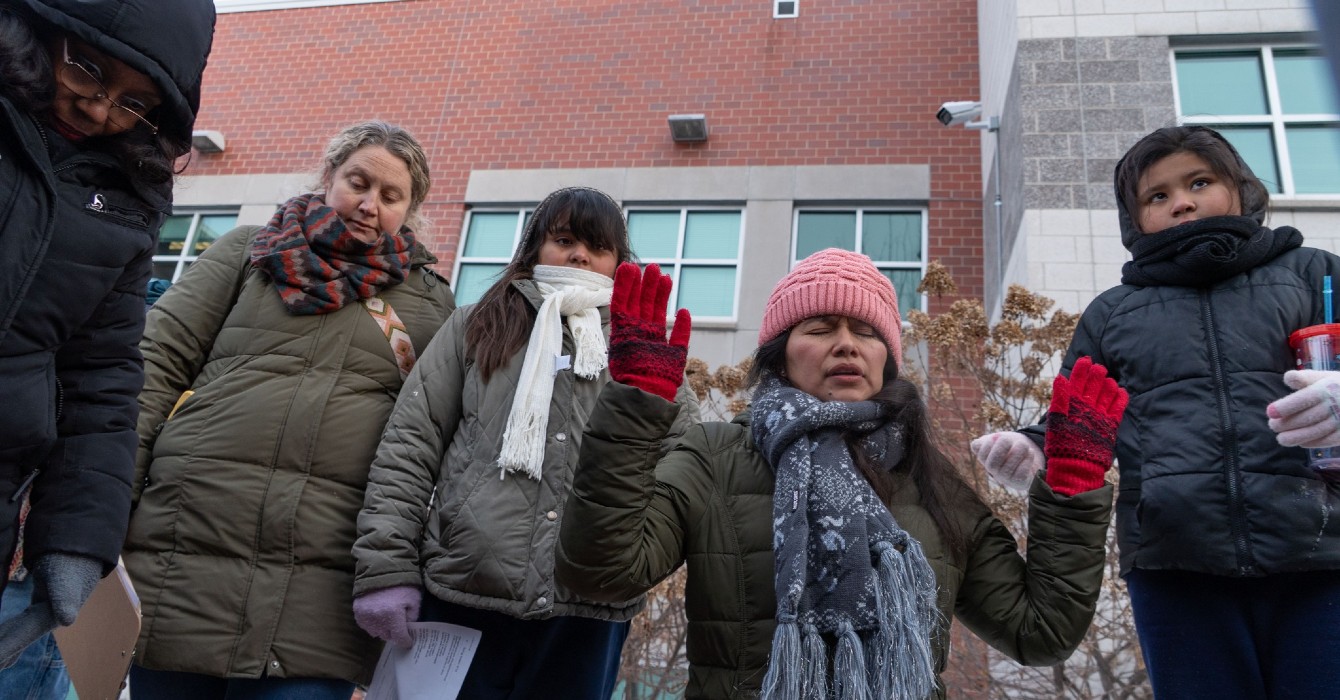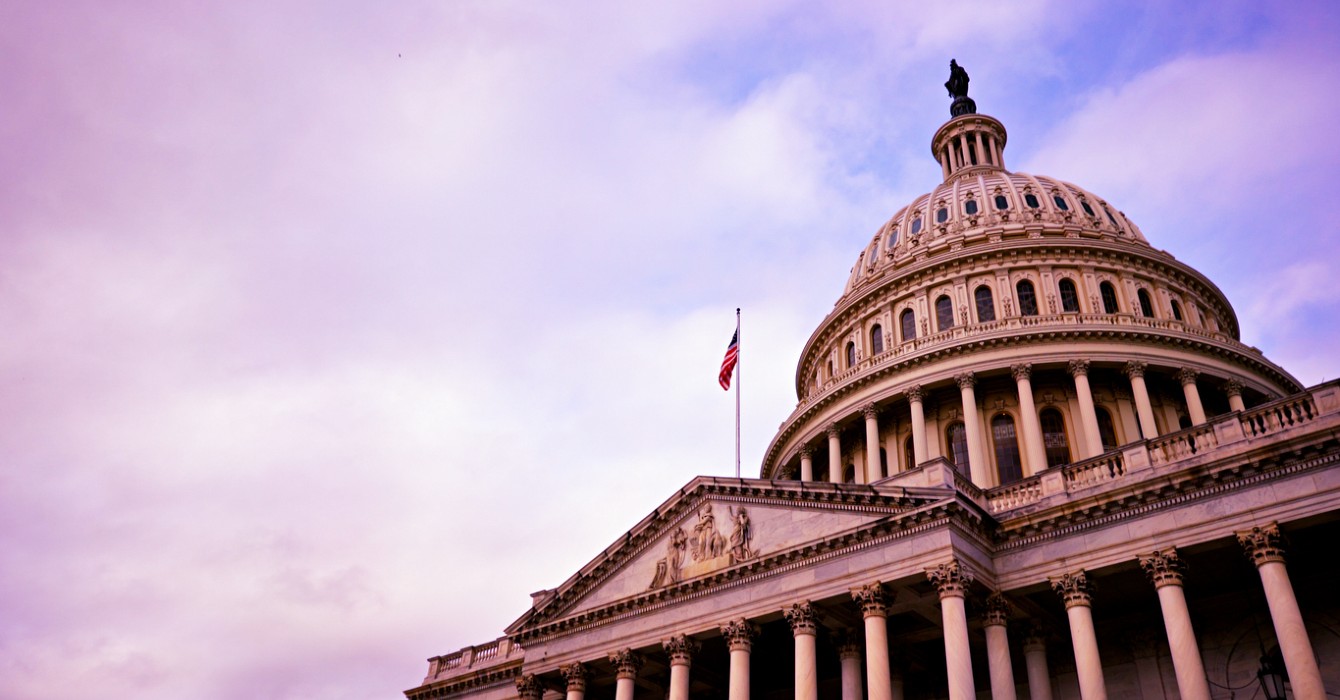A fragile ceasefire only provided eight weeks of temporary respite in Gaza until Israel resumed airstrikes on the region on March 18. The bombing interrupted the holy month of Ramadan, and subsequent strikes have killed nearly 1,500 Palestinians at the time of writing.
The crisis continues to divide the U.S. church, and the opinions of Christian clergy and their congregations about the conflict are drifting apart. At the same time, lives are at stake, and peacemaking work isn’t waiting for U.S. Christians, according to Amy Yoder McGloughlin and Melissa Florer-Bixler, two pastors with expertise in interfaith work and relationships in Palestine and Israel.
In this second conversation between Yoder McGloughlin and Florer-Bixler, they discuss the collapse of the ceasefire and how conditions in Gaza have gotten worse over the past year.
How are your interfaith relationships different since the last ceasefire?
Amy Yoder McGloughlin: I expected, perhaps naively, that a ceasefire would soften relationships again. I had felt a gradual softening and an empathy for Palestinians in the Jewish community in the last year. But the ceasefire felt like a relationship setback.

Where the term “terrorist” seemed to be used less frequently to describe Palestinians, I saw it used more often after the ceasefire. And when two dead babies were delivered from Hamas to Israel in February, that felt like a rhetorical and emotional return to Oct. 7.
I have gently invited rabbi friends to be careful with the use of that word, and I have been told that they must name it what it is. That strong language gives me pause and makes it nearly impossible for me and many Muslims to engage in interfaith work.
Melissa Florer-Bixler: I’ve had a different experience than Amy. I’ve dug deeper into relationships with our local synagogue. When I feel frustrated, I remember that the rabbis I know are risking a great deal to call for an end to occupation, even as they work within complex relationships and responsibilities, both here and in Israel.

Like Amy, I am steadfast in my commitment to my Jewish neighbors’ safety — not in theory, but grounded in a willingness to show up, just as I have done in the past. And I’ve been open and vocal about my horror at the terror and destruction unfolding with Israel’s broken ceasefire agreement, the increase of settler violence and the Department of Homeland Security’s kidnapping of pro-Palestinian protestors here in the United States.
I’m also aware of the cost we are experiencing in our interfaith and ecumenical relationships and community. I have a difficult time imagining how we work on the serious and pressing issues our communities face under the Trump administration with so much distrust.
Many of our Muslim friends and our Palestinian Christian friends tell us they feel abandoned by the church. In my community, churches that have acted decisively in the face of racism and deportation mandates continue to be silent on the genocide in Gaza.
What has changed since the election of Trump in terms of stakes and responses from churches?
AYM: The weekend after the election, I met with leadership from Mennonite Action, an organization in the Anabaptist tradition devoted to advocating for Palestinian liberation. We had clarity that a pivot was needed. Tactics that would be useful with Biden or Harris would not move a Trump administration. So, what should we do?
We moved to pressuring organizations to change their practices and policies around Palestine, to equipping our pastors and congregations to be nimble with resources, and to train local chapters in their communities. The work is going to look different in different communities, and we want to encourage congregations to navigate in their own contexts and challenge themselves to go outside of their comfort zones in responding to the needs that are coming.
I truly believe that we are made for this moment. We have the skills we need and we need the courage to act boldly.
MFB: I knew we were facing formidable odds under the Trump administration. At the same time, the people of Palestine had no ally in the White House in the previous administration, as the Democratic Party is an historic and persistent arbiter of destruction, death and violence in Palestine.
I also think the intensification of anti-Palestinian enforcement and antisemitic rhetoric under the Trump regime gives us an opportunity to build new communities and to live out the kind of world we want to see in the midst of this devastation.
Last week our congregation, as a part of Mennonite Action Triangle, put on an action called “God’s Love Knows No Borders.” We were saying no: to Christian Zionism and Christian nationalism, to the targeting of activists for deportation, to antisemitism and Islamophobia.
But that public act of worship was also a “yes.” Our speakers included a Muslim activist and organizer, the rabbi of the anti-Zionist synagogue in Durham, and one of our Mennonite middle schoolers who has been a consistent presence in these actions.
We sang and we ate together. We offered foot washing. We prayed. In the midst of the devastation — U.S. bombs once again tearing apart the bodies of Gazans, the United States silencing dissent through intimidation — we made the world we want to see. The life we long for will grow, even in this soil. Perhaps now, more than ever, the terrors of the current administration are pushing us toward one another.
Can you see a way forward?
AYM: I visited Palestine in February and March of 2025, and it was the most challenging visit of the 11 I’ve made.
Getting around was more challenging because checkpoints feel like they are multiplying. I couldn’t get into Masafer Yatta in the southern portion of the West Bank because checkpoints and barriers have been added.
I couldn’t get into the neighborhood of Tel Rumeida in Hebron because the military is only allowing residents into that community. I was able to get to Nablus, but the checkpoints getting out of the city and continuing into the West Bank took hours to get through.
It’s clear that the Israeli military wants to make life as difficult as possible. And every day, it feels like the clamps are tightened a bit more.
There have been a few things this month that give me hope for a way forward, and I find myself coming back to these moments regularly.
Being in Palestine during Ramadan was humbling. To be a Muslim in Palestine is to participate in a communal experience of empathy for those who are experiencing more difficulty than you are.
When my Muslim friends experience hunger and thirst in Ramadan, they remember those in Gaza who are hungry and with little hope for food or clean water today. My Muslim friends in Palestine talked a lot this season about the patience that Ramadan teaches — that we will get what we need from God, in God’s time.
My experience of Ramadan felt like an invitation into a true spiritual practice of solidary during Lent, one that I’m still trying to process. Giving up chocolate or coffee for Lent feels like not enough to get the experience of solidarity or to fully understand patience.
Also, I’ve been reading Munther Isaac’s new book, “Christ in the Rubble,” and I’m marveling at the power of hope he explores in his final chapter. Isaac, pastor of Christmas Lutheran in Bethlehem, admits that it’s been hard to preach hope since Oct. 7, and he’s opted at times to preach about survival.
He’s been challenged to not leave the task of imagination to the oppressors, but to instead envision a different reality. He writes, “When we stop hoping, we declare that we give in to tyranny and oppression, allowing the oppressors of the empire to shape our reality. When we stop hoping, we accept that injustice is the norm.”
As a Christian leader, I need to keep hope in the resurrected Christ at the center of this work. The work to end this occupation and genocide is one rooted in the unlikely resurrection story. It’s rooted in Jesus’ good news of liberation. I’m clear that my vision for the future needs to remain focused on all the goodness God desires for us.
MFB: I do see a way forward for Palestine, but what has changed for me is seeing the diminished role the U.S. church will play, if any, in that future.
I’ve been working with a group of global Christians — from the U.K., South Africa, Central and South America, Palestine and Egypt — on a peacebuilding summit this summer. These Christians from around the world will gather to work toward peacemaking strategies in Palestine.
Each of these Christian leaders brings their experience of struggle against colonial empires, from Indigenous communities in the Americas to those who continue to challenge the structure of apartheid in South Africa.
I hear from groups like these the same conclusion: they do not consider the U.S. to be a vital participant in the formation of a just future in Palestine. The days of the United States offering a supposed moral compass or being at the center of the conversation of global prosperity are over.
Keep in mind, these are not diplomats. These are Christian leaders with centuries of struggle in their bones and a common faith in Jesus Christ. They say the same thing: the U.S. church failed Palestine.
Christians outside the global minority of North America see our silence, the censoring of divinity students and the institutional timidity of the corporate church. They are planning to forge ahead not only without us but in spite of us, and against us, if necessary.
I hear these Christians leaders say that they are done trying to convince the U.S. church to take up this work. They will find a way forward with their own gifts, communities, experiences and strategies. I feel fortunate and humbled to support this work and to watch the Holy Spirit blow new and fresh winds into those who will take up the work.


















